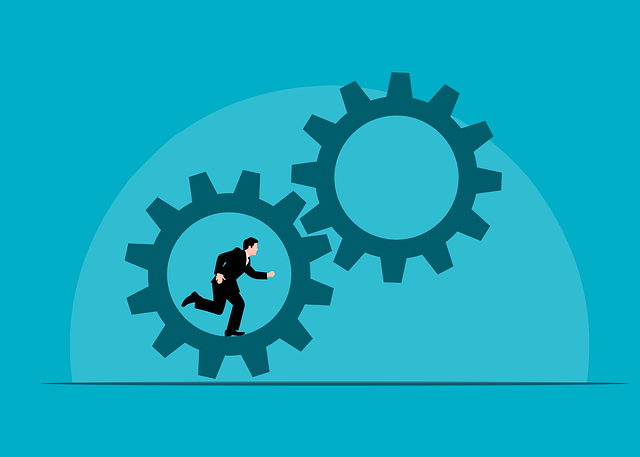Migrating to an enterprise platform solution represents a strategic move for many organizations aiming to enhance business productivity and streamline core business activities. But, exactly, How can Migrating to an Enterprise Platform Solution Help a Business Improve Employee Productivity? Let’s find out!
How can Migrating to an Enterprise Platform Solution Help a Business Improve Employee Productivity
Migrating to an enterprise platform solution represents a strategic move for many organizations aiming to enhance business productivity and streamline core business activities.
Streamlined Workflow and Process Automation
By migrating to an enterprise platform, businesses can automate various business operations, significantly reducing the employee’s daily workload.
This automation of tasks allows employees to focus more on key business functions rather than spending time on repetitive tasks.

An integrated system provided by enterprise platforms ensures that all business processes are streamlined, making access to the same stored data faster and more efficient, thereby boosting overall business productivity.
Enhanced Collaboration and Communication
Enterprise platforms often come with advanced collaboration tools and integrated communication solutions like Microsoft Office, which are essential for improved communication within a company.
These enterprise applications facilitate seamless sharing of data and information among employees, regardless of their physical location.
By enabling better collaboration, employees can work more effectively on joint projects, reducing the time spent on coordinating tasks and enhancing the overall efficiency of the business operations.
Centralized Data Management and Accessibility
Migrating to an enterprise platform solution can significantly enhance employee productivity by centralizing data management and accessibility.
This centralization allows employees to access the same stored data quickly and efficiently, reducing the time spent searching for information across various systems.

By having all data in one place, employees can focus more on core business activities, improving overall business productivity.
This streamlined access to data, whether on premises or in the cloud, simplifies business operations and reduces the complexity added by disparate systems.
Advanced Analytics and Reporting Capabilities
An enterprise platform solution help a business improve employee productivity through its advanced analytics services and reporting capabilities.
By leveraging big data and analytics, employees can gain deeper insights into business operations, enabling them to make data-driven decisions swiftly.
This access to real-time analytics and customized reports saves significant employee’s time that would otherwise be spent on manual data analysis, thus enhancing their ability to focus on strategic business functions and client solutions.
Improved IT Infrastructure and System Reliability
Migrating to an enterprise platform ensures improved IT infrastructure and system reliability, which is crucial for maintaining consistent employee productivity.
A robust enterprise platform reduces the frequency of system downtimes and technical issues, ensuring that employees have uninterrupted access to essential business tools and services.

This reliability means that employees can work more efficiently without the interruptions that can occur with less stable systems, thereby optimizing their daily workload and contributing positively to the overall productivity of the business.
Scalability to Support Business Growth
Migrating to an enterprise platform solution can significantly help a business improve employee productivity by offering scalability to support business growth.
As a company expands, its data and business operations often become more complex.
An enterprise platform can adapt to these changing needs, allowing for the addition of more users, data, and services without sacrificing performance.
This scalability ensures that employees can continue to access and manage the same stored data and core business activities efficiently, even as the business grows, thus supporting increased productivity without adding complexity to the employee’s daily workload.
Enhanced Security and Compliance Features
Enhanced security and compliance features are key benefits of migrating to an enterprise platform solution, directly impacting business and employee productivity.
With stringent security measures in place such as built-in log analysis tools, companies can safeguard sensitive data, reducing the risk of data breaches that can disrupt business operations.

Compliance with industry standards and regulations is also streamlined, ensuring that the business functions within legal parameters.
This security and compliance assurance allows employees to focus on their tasks without the added burden of managing these technical requirements, thereby improving their overall productivity.
Customization and Integration with Existing Tools
An enterprise platform solution offers customization and integration with existing tools, which is crucial in improving employee productivity.
By migrating to an enterprise platform, businesses can tailor the software to meet their specific needs and seamlessly integrate it with the cloud and other existing business solutions.
This customization ensures that employees have access to a platform that is aligned with their work processes and business functions.
The integration capability means that employees can work with a unified system, reducing the time and effort spent navigating between different software and tools, thereby enhancing their efficiency and productivity.
Key Takeaways
- Migrating to an enterprise platform solution helps streamline access to the same stored data, enhancing efficiency.
- This migration accelerates the retrieval of stored data faster, aiding quick decision-making.
- It simplifies complex business functions, allowing employees to focus on core tasks.
- An enterprise platform solution can significantly improve a business by optimizing employee’s time.
- Leveraging big data analytics becomes more accessible, providing deeper business insights.
- The migration reduces the addition of complexity in business processes, improving employee productivity.
- Cloud integration in enterprise platforms offers flexible and scalable solutions for companies.
- The migration process is a strategic answer to evolving business needs, supporting company growth.
Conclusion
Migrating to an enterprise platform solution is a strategic move that can transform how a company operates. It not only simplifies access to data and business functions but also enhances employee productivity by reducing complexity and improving time management. This solution, especially when integrated with cloud technology, provides a scalable and efficient platform that helps businesses grow and adapt to changing market demands.
How can business improve employee productivity with enterprise app? Enterprise platform solution help a business in managing employee’s daily workload, business needs, same stored data migration, organization, business function, and more.



